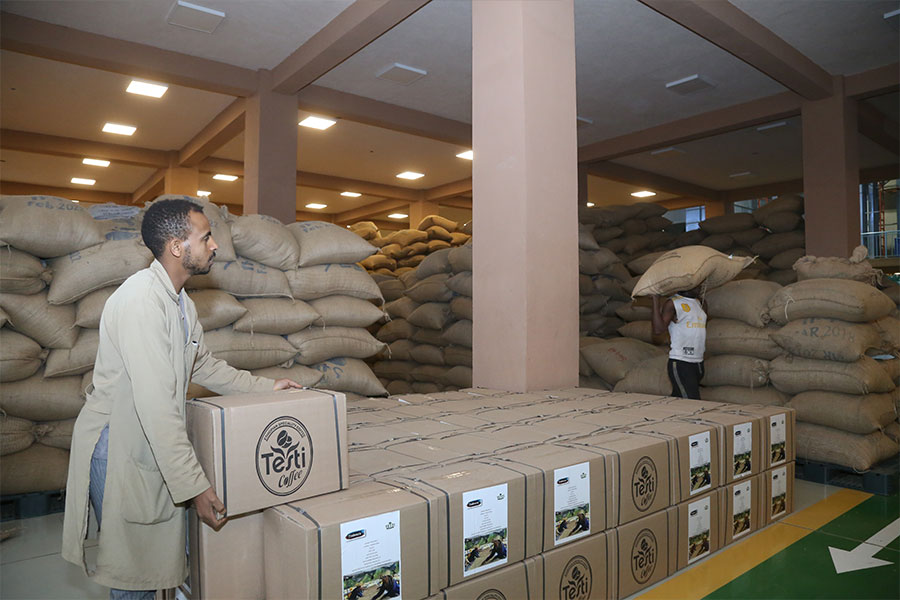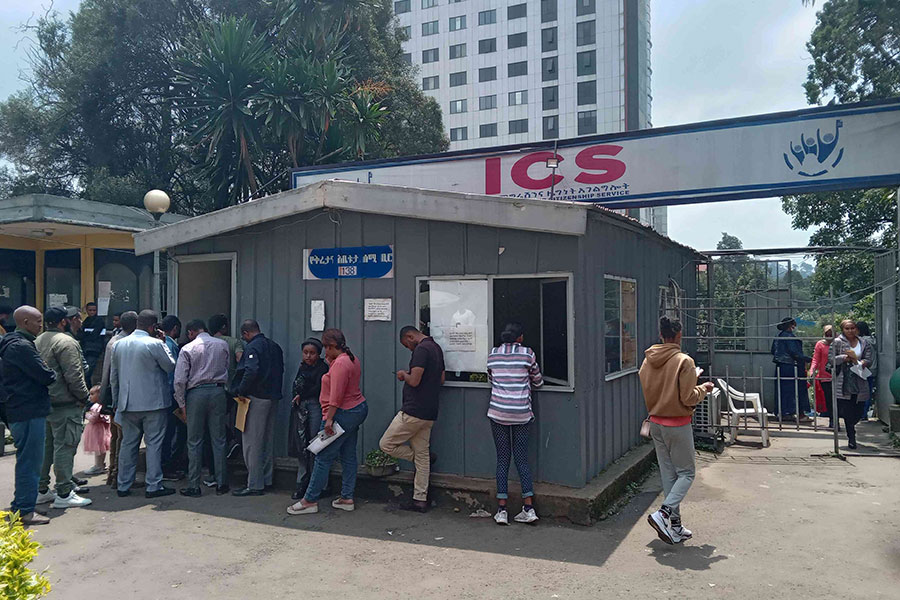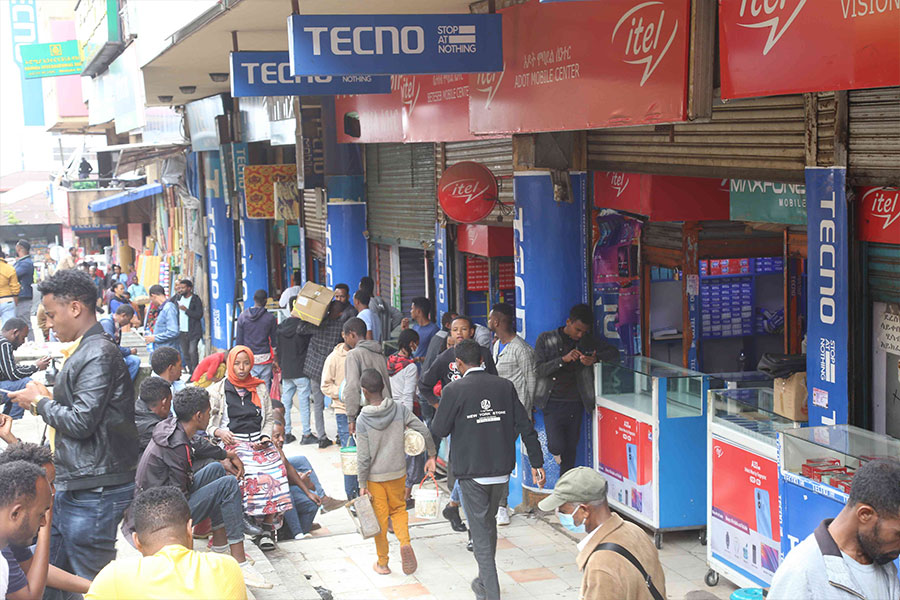
Sponsored Contents | Oct 25,2024
Aug 10 , 2024
By Geremew Milkias
For decades, the financial sector has pondered the rocky ideas of market liberalisation and floating exchange rates. The recent upheaval triggered by the unpegging of the Birr has laid this struggle bare. When the government opted to restructure its debts and revalue the Birr — an essential step dictated by international lenders — the banking industry found itself in turmoil, revealing how unprepared it has been for such a seismic shift.
The disarray during that first week of floating the Birr was telling, demonstrating the disparity between the official exchange rate and the parallel market. The varying forex rates from commercial banks leading up to the National Bank of Ethiopia's (NBE) special auction revealed an inconsistent demand for foreign currencies. Questions arose about the prudence of private banks choosing not to buy from the state-owned Commercial Bank of Ethiopia (CBE) in the interbank market, a decision that resulted in opportunity loss for those banks.
Interestingly, the following week brought an unexpected calm, denoting a positive response from most private banks, with only a few stragglers. CBE, a frontrunner in setting the exchange rate, managed to weather the storm by keeping its rate stable, only to increase its spread to about 10pc from the previous five percent by week’s end. The special foreign exchange auction must have played a crucial role in stabilising the market.
As we advance into the digital age, the robustness of the banking infrastructure's cybersecurity is being put to the test. A recent glitch at CBE has brought to attention the urgent need to enhance security, especially as the economy becomes increasingly digital. The potential havoc a cyberattack could unleash — especially in the foreign exchange markets — is a threat the authorities should take seriously.
The floating exchange rate amplifies systemic risks within the banking industry and the larger economy. The shift has intensified the fiscal burdens on customers, who, despite having settled their letters of credit (LC), should now contend with inflated bills due to Birr losing its ground. The anticipated arrival of foreign banks would add another layer of uncertainty. Caught off guard, domestic banks are struggling to adapt to this new market reality.
These new entrants, supposedly equipped with substantial capital, technology and competitive advantages, would pose a formidable challenge to local banks, many of which have seen their total assets and paid-up capital nearly halved due to the exchange rate volatility. Yet, amidst these uncertainties, the Central Bank has begun to assert its regulatory influence on the market. However, the demand for regular updates on global forex standards and swift transaction reporting indicates a pressing need for even closer monitoring of market movements.
The evolution of foreign exchange markets has opened the floodgates to new risks for businesses and financial institutions. The economic risks posed by currency fluctuations, particularly given the country’s political climate and systemic vulnerabilities, are real threats. Interestingly, the recent deposit pledges of 2.5 billion dollars from multilateral financial institutions could have positively impacted liquidity and slightly boosted the Birr.
However, these positive trends exist alongside concerns about how the financial sector will respond to the influx of foreign banks and investors, as well as the looming threat of speculative attacks on the currency. The need for preparedness and adaptability has never been more crucial.
PUBLISHED ON
Aug 10,2024 [ VOL
25 , NO
1267]


Sponsored Contents | Oct 25,2024

Delicate Number | Sep 10,2023

News Analysis | Nov 03,2024

Agenda | Jul 02,2022

Radar | Jul 11,2021

Viewpoints | Dec 04,2022

Radar | Jan 09,2024

Agenda | Aug 12,2023

Agenda | Aug 14,2022

Commentaries | Jun 14,2025

My Opinion | 131974 Views | Aug 14,2021

My Opinion | 128363 Views | Aug 21,2021

My Opinion | 126301 Views | Sep 10,2021

My Opinion | 123917 Views | Aug 07,2021

Dec 22 , 2024 . By TIZITA SHEWAFERAW
Charged with transforming colossal state-owned enterprises into modern and competitiv...

Aug 18 , 2024 . By AKSAH ITALO
Although predictable Yonas Zerihun's job in the ride-hailing service is not immune to...

Jul 28 , 2024 . By TIZITA SHEWAFERAW
Unhabitual, perhaps too many, Samuel Gebreyohannes, 38, used to occasionally enjoy a couple of beers at breakfast. However, he recently swit...

Jul 13 , 2024 . By AKSAH ITALO
Investors who rely on tractors, trucks, and field vehicles for commuting, transporting commodities, and f...

Jul 5 , 2025
Six years ago, Ethiopia was the darling of international liberal commentators. A year...

Jun 28 , 2025
Meseret Damtie, the assertive auditor general, has never been shy about naming names...

Jun 21 , 2025
A well-worn adage says, “Budget is not destiny, but it is direction.” Examining t...

Jun 14 , 2025
Yet again, the Horn of Africa is bracing for trouble. A region already frayed by wars...

Jul 6 , 2025 . By BEZAWIT HULUAGER
The federal legislature gave Prime Minister Abiy Ahmed (PhD) what he wanted: a 1.9 tr...

Jul 6 , 2025 . By YITBAREK GETACHEW
In a city rising skyward at breakneck speed, a reckoning has arrived. Authorities in...

Jul 6 , 2025 . By NAHOM AYELE
A landmark directive from the Ministry of Finance signals a paradigm shift in the cou...

Jul 6 , 2025 . By NAHOM AYELE
Awash Bank has announced plans to establish a dedicated investment banking subsidiary...